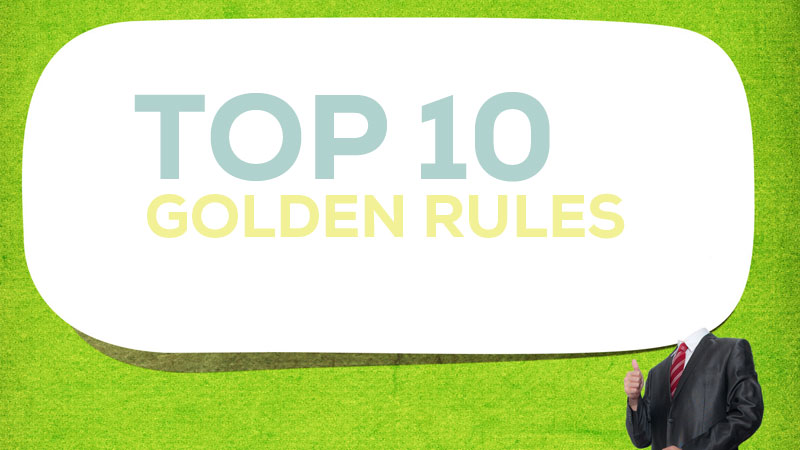Client’s are constantly asking me about search engine optimisation and to help everyone I decided to put together this simple 10 golden rules of SEO.
- Search engines loves great content – The better the content is structured and written on your website, the more Google will read and search the content of your website and other people will read it as well. Keywords should be written naturally into the content of each individual page of the website in order to ensure the site is well optimised for search engines.
- Keywords in title tag (unique for each page, include keywords) – Keyword titles are one of the most important HTML tags that can be optimised for search engines. You should always have unique title tags for each page of your website.
- Keyword in H1 on each page – Google reads content by the HTML code of your website. A H1 tag tells Google about the headline of that content or copy. So if you are targeting the keyword ‘chocolate donuts’ primarily, you should ensure this appears in your headline.
- Add your keywords in text – Your keywords should be work naturally into the content of each page on your website. The rule of thumb is 4-6 keywords references in the text copy.
- Optimise your URL architecture – (www.website.com/example/topic instead of www.website.com/example/?topic=cookies). Use correct 301 redirects if your renaming pages or URL structure. Another essential part of search engine optimisation, the better the website architecture the easier it is for Google to read your pages, and more quickly! Google prefers high-fens rather than underscores any URLs are best written as http://www.website.com/good-seo-guide.htm
- Alt tags – Make sure all images have alternative text for search engines. This should be done on relevant images, include keywords in alt tags and in your image filenames.This is also important from a usability perspective.
- Decide if you need a meta description – Modern search engines are great at scanning the text of websites and displacing applicable snippets based on user queries. You need to decide if you want to rely on the algorithm or create your own description. Remember the purpose of making the description is to convince potential customers to click on the link in the search engine page results (SERPs). Make it convincing and use your keywords.
- Add company address and phone number – Be sure to do this on every page. The search engines are smart enough to detect address and phone number formats. This data is essential to local search and google maps.
- Make sure you website is user friendly and potential customers can make an enquiry simply – If your website is difficult to use, there is no point in being 1st in Google for your chosen keyword as you will be wasting valuable traffic by people leaving due the frustration of using your website over a competitors.
- Remember it’s not just optimising a website for search engines that helps your ranking. You need links!!! Google counts links to your website as a vote, the more votes you have, the more likely your reputation will be improved and authority in Google, hence the improvement in rankings. 100,000 links from spammy sites with bad anchor text will help less than a single link with excellent keyword anchor text from a super authoritative site.
Finally here is an example of the perfect optimised page from the SEOmoz blog.


